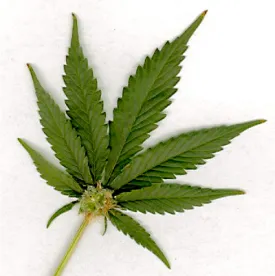Given the safety-sensitive nature of the industry, many health care employers mandate drug testing of their employees and/or applicants. A movement in favor of employees who use medical marijuana may be emerging, and employers must now become familiar with medical marijuana laws in each of the states where they conduct business to avoid running afoul of this new trend.
Prior to the wave of recent cases in 2017, employers were able to successfully defeat claims of wrongful termination brought by employees who were medical marijuana users under individual state laws. For example, courts in California, Colorado, Montana, Oregon, and Washington – all states that have decriminalization laws that do not contain express employment protections –found in favor of employers against sympathetic employees under the theory that the federal Controlled Substance Act (“CSA”), 21 U.S.C. § 801 et seq., which classifies marijuana as an illegal controlled substance, preempts the applicable state laws. Recently, however, a number of courts – all in states that have enacted employment protections as part of legislation legalizing medical marijuana use – have found in favor of employees using medical marijuana, and have explicitly held that federal law does not preempt the applicable state law. These recent decisions have compelled employers who operate in these states to reevaluate whether to conduct drug testing for marijuana and, if so, how to address positive tests from employees or applicants.
The first notable case indicating this change of direction was Callaghan v. Darlington Fabrics, in which the Rhode Island Superior Court held that an employer’s enforcement of its neutral drug testing policy to deny employment to an applicant because she held a medical marijuana card violated the anti-discrimination provisions of the state medical marijuana law (the Hawkins-Slater Act). Significantly, the Rhode Island court found that plaintiff’s status as a medical marijuana cardholder signaled to the employer that she could not have obtained the card without a debilitating medical condition that constituted a disability and that the allegations therefore supported a claim of disability discrimination premised on a disparate treatment theory. The court also held that the CSA did not preempt the Hawkins Slater Act because the purpose of the CSA did not conflict with the state employment and anti-discrimination law.
Similarly, in Barbuto v. Advantage Sales and Marketing LLC, the Massachusetts Supreme Judicial Court held that a qualifying patient who was terminated from her employment as a result of her lawful marijuana use may state a claim of disability discrimination under the state’s anti-discrimination statute. The court found that, in some circumstances, an employer may have an obligation to accommodate the off-duty use of marijuana for medicinal purposes. Like the Rhode Island court, the Massachusetts court concluded that the CSA does not make it per se unreasonable to accommodate a medical marijuana user.
Consistent with this developing line of cases, in Noffsinger v. SSC Niantic Operation Company, LLC, the U.S. District Court for the District of Connecticut recently ruled in favor of a job applicant who was a medical marijuana user after her employment was terminated upon testing positive for marijuana in connection with her job application. The court concluded that medical marijuana users are protected under Connecticut’s Palliative Use of Marijuana Act (“PUMA”) from being terminated or refused employment based solely on medical marijuana use. The court found that PUMA did not conflict with the CSA, the Americans with Disabilities Act, or the Food, Drug and Cosmetics Act because those federal laws are not intended to preempt or supersede state anti-discrimination laws. This decision is particularly notable because it is the first federal decision to determine that the CSA does not preempt a state medical marijuana law’s anti-discrimination provision.
Takeaways
Twenty-nine states plus the District of Columbia have enacted legislation legalizing medical and/or recreational marijuana use. Employers operating in multiple jurisdictions must pay particular attention to the medical marijuana statutes in each state they operate.
Health care employers operating in states that prohibit discrimination against and/or require accommodation of medical marijuana use must be aware of the increased risk of enforcing zero tolerance drug testing policies against certified medical marijuana users. While obvious safety considerations arise when health care workers use or may be under the influence of marijuana, employers in these states must take additional precautions when administering drug testing policies. Health care employers operating in these jurisdictions should review their drug testing policies and consider whether to continue testing for marijuana and, if so, how they will address positive tests for marijuana use.




 />i
/>i

